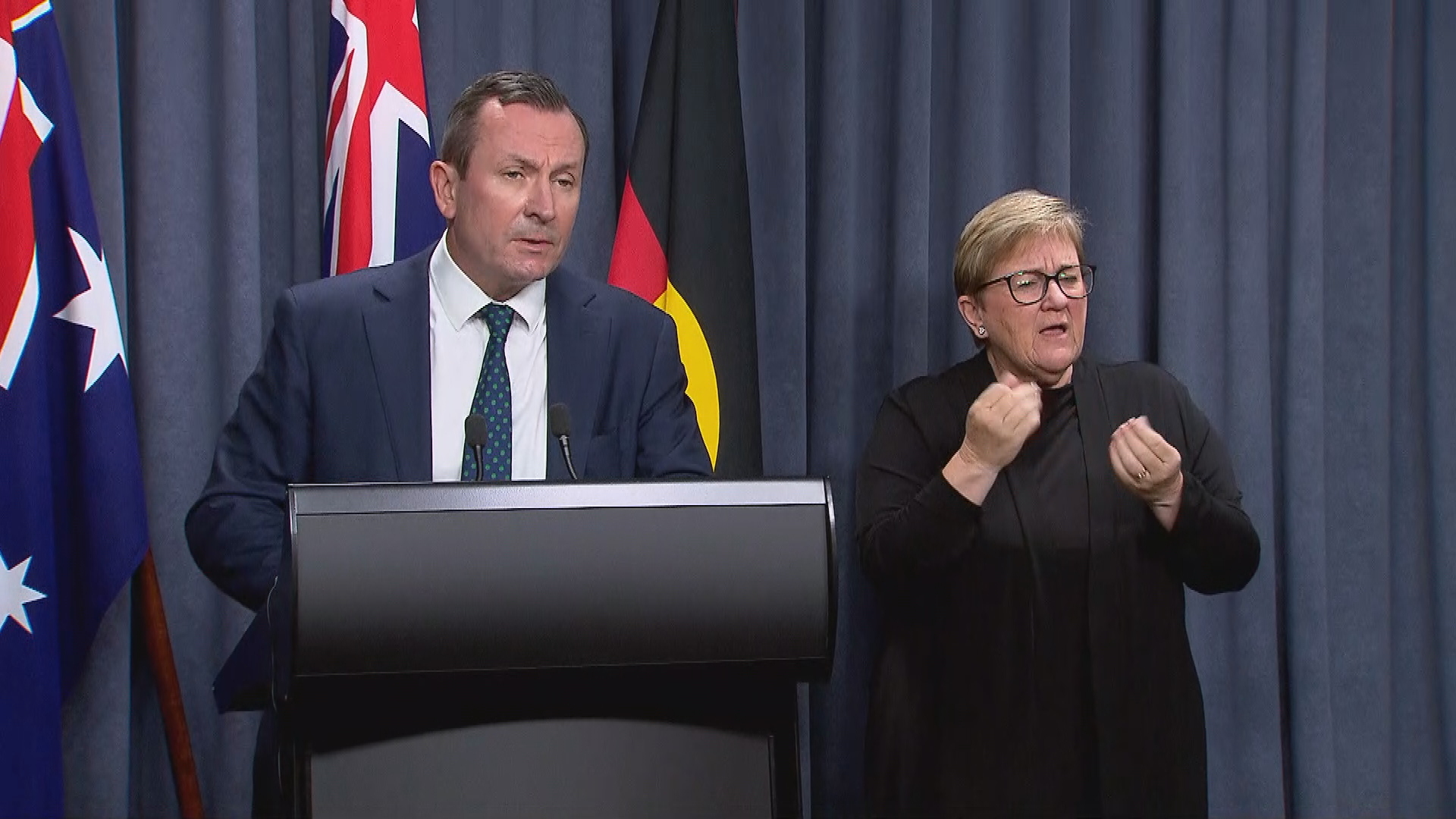Western Australia has recorded nine new local COVID-19 cases, and the state's Premier Mark McGowan has outlined the plan for when cases inevitably spike.
Of today's cases, all are linked, but some were infectious in the community. There are two people in hospital with the virus.
"These numbers this far into an Omicron outbreak are pleasing," Mr McGowan said, adding it is not a time for complacency.
READ MORE: What we know about BA.2 variant, the 'stealth' version of Omicron
He has also outlined new rules around testing, isolating and other restrictions which will be introduced when cases inevitably rise when the borders open and the "caseload is higher".
"Omicron infected tens of thousands daily, requiring isolation of tens of thousands more," he said.
"Many workplaces and supply chains were dramatically affected. We want to do what we can to minimise those impacts."
"Firstly, casual contact will no longer be considered. That means being at an exposure site the same time as a positive case will not be a reason for forced testing and isolation," he said.
READ MORE: US Navy wants to get crashed stealth fighter back – before China can
People will be asked to keep checking in to venues so they can monitor for symptoms.
"Secondly, the definition for close contacts will change," Mr McGowan said.
A household member or intimate partner of a person with COVID-19 is still considered a close contact, as is anyone who has had "a close personal interaction" with someone during their infectious period.
This is defined as 15 minutes of face-to-face contact without a mask.
The isolation period for close contacts will also be reduced from 14 to 7 days in some circumstances.
READ MORE: First records of killer whales hunting largest animals on Earth
Like most other states and territories, WA will introduce isolation exemptions for asymptomatic close contacts in some critical industries.
Some of these industries include: "transport, food beverages pharmaceutical supplies, agriculture, critical resources, power utilities and waste management services, corrective and judicial services, police and emergency services, schools and childcare, healthcare services, social assistance at residential care, veterinary services, funeral, crematorium and cemetery services and defence and defence-related industries," Mr McGowan said.
None of these changes will be implemented until there are more cases in the state. WA will also shift to using rapid tests as a diagnostic tool and not rely solely on PCRs.
The full and detailed breakdown of these restrictions, and when they will be implemented, will be available on the Healthy WA website.
Source: 9News



